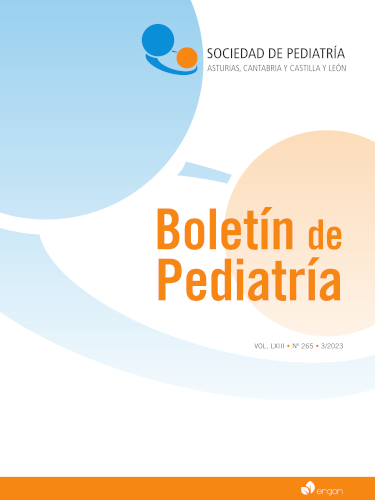Abstract
We present the case of a 5-year-old school boy who consulted our department for asymptomatic macrohematuria. After confirming the glomerular origin, poststreptococcal acute glomerulonephritis was suspected due to a history of pharyngotonsillar infection, however the complement is normal. He presents rapid and progressive deterioration of kidney function, which is why he is diagnosed with rapidly progressive acute glomerulonephritis.
A renal biopsy was performed, showing crescents in 81% of the glomeruli and C3 deposits, compatible with acute post-infectious glomerulonephritis. Immediately afterwards, corticosteroid treatment was started, with excellent progress and complete recovery of kidney function.
Only 10-20% of acute post-infectious glomerulonephritis present with normal complement levels, and only 0.5% of cases manifest as rapidly progressive glomerulonephritis.
Macrohematuria in children can be a diagnostic challenge. Sometimes the manifestations are very variable and can be attributed to different causes and until the biopsy we cannot reach a reliable diagnosis.

This work is licensed under a Creative Commons Attribution-NonCommercial 4.0 International License.
Copyright (c) 2023 Boletín de Pediatría
